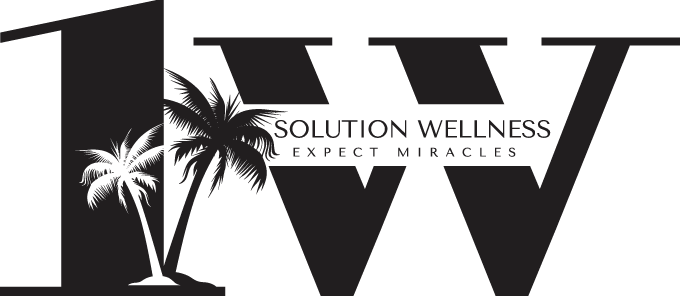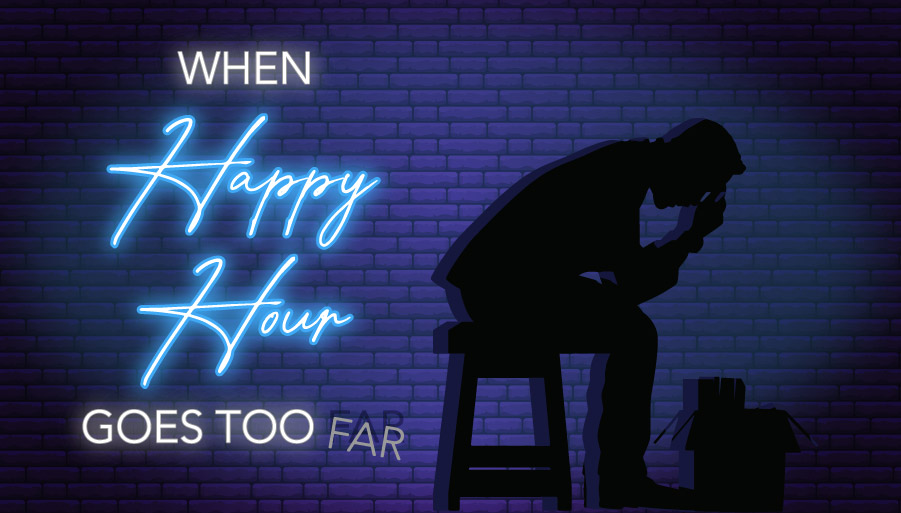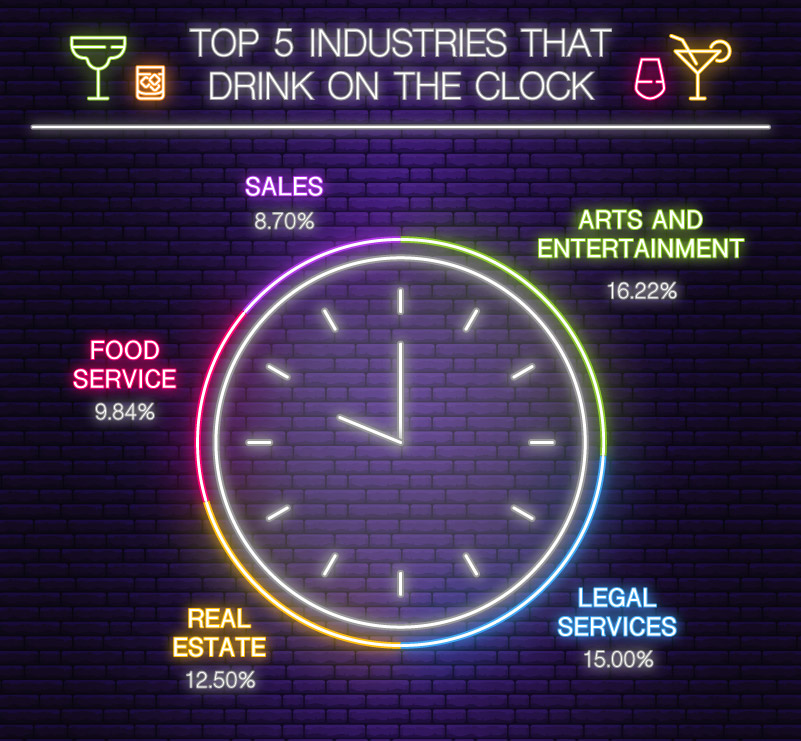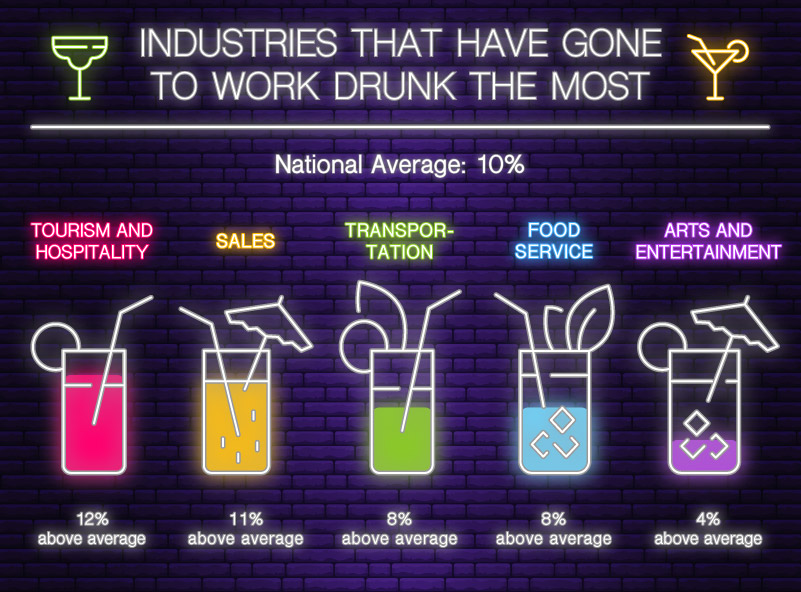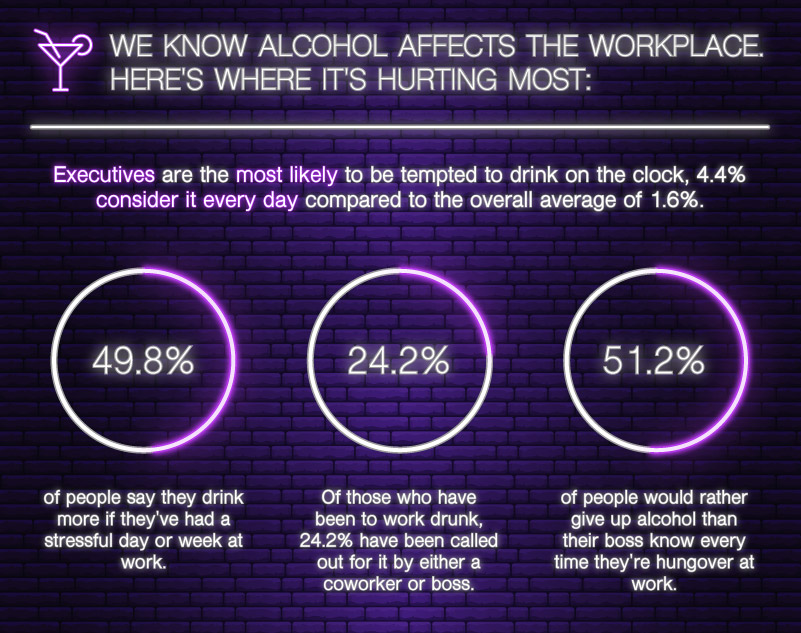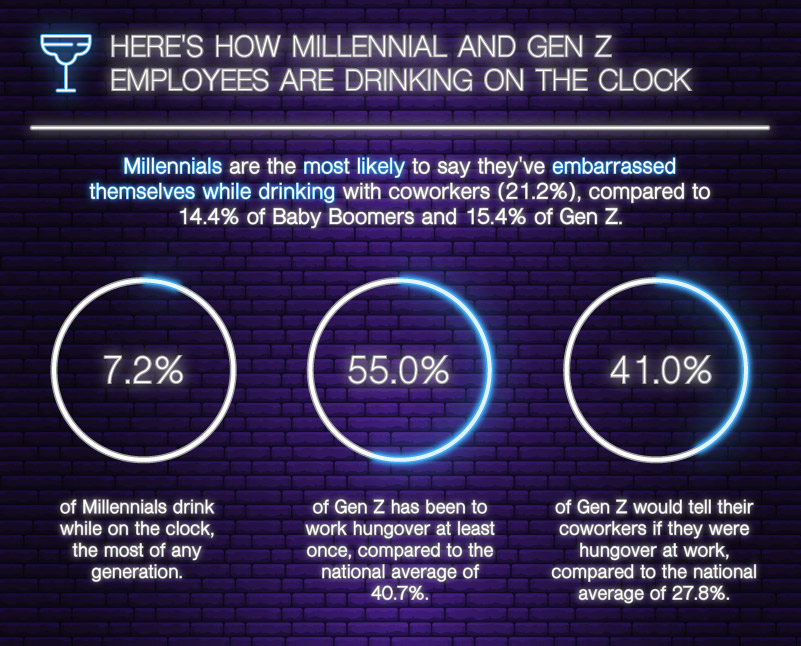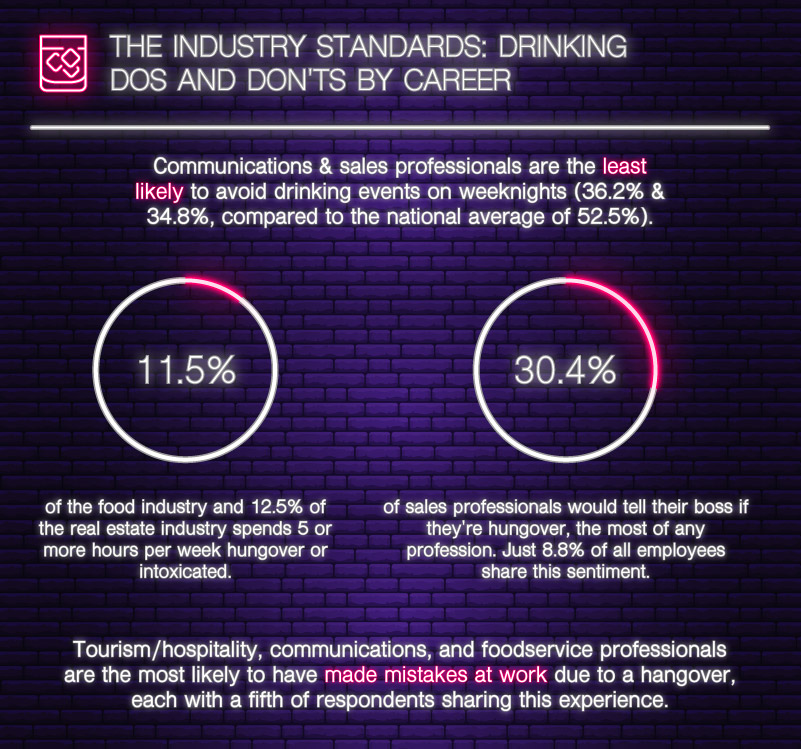Half-priced mojitos and two-for-one cocktails can turn a night of dinner and drinks into morning regret. One study found that binge drinking increased by 21% during the pandemic, leading to risks of liver disease and alcohol-related deaths. Mounting social pressures can encourage excessive drinking and skipping the morning commute in exchange for a few extra hours of sleep.
With Americans drinking more than they did during the prohibition, 1 Solution Wellness was curious about how much happy hour after work affects on-the-job performance the next day. Excessive drinking can cause missed meetings, low productivity, and hangover symptoms. From gin, vodka, beer, and tequila—discover which industries and their drinking habits simply don’t mix.
Methodology
We surveyed 1,500 participants over one day in March 2022 to discover how their sobriety or drinking patterns affected their productivity at work. To get the inside scoop on Americans’ on-the-clock drinking habits, we asked questions like “have you ever gone to work drunk?” and “how often do you drink during the work week?” We sorted feedback by industry, position, and generation to get a more conclusive picture of who is living life sober and which industry drinks the most during the work day.
Top 5 Industries that Drink on the Clock
Whether it’s the offer of a watermelon margarita at an open house or a round of beers during a business deal, some industries are great for sobriety, and others—not so much. When it comes to the arts and entertainment industry, it’s no surprise that 16.22% of respondents say that they drink on the clock. For some, happy hour after work is a reward for putting in those long hours on a film set or bonding with coworkers at an advertising agency.
15.00% of legal workers reported drinking while on the job. Shockingly, 1 in 4 law students illustrated problems with drinking—a trend that seems to carry through firms and negatively impact lawyers’ drinking habits. The question on everyone’s mind is how to stay sober when studying law or dealing with work stress. Luckily, deep breathing, exercising, and eating healthy can all go a long way!
The food service industry ranks fourth with 9.84% of participants revealing they have drunk during business hours. At the end of the third quarter of 2021, 24% of all food service workers were teenagers. The allure of alcohol and getting buzzed on the job may be especially enticing to young minds, perhaps accounting for this connection.
Industries that Have Gone to Work Drunk the Most
Whether you’ve had a few shots at home before heading into work or rolled out of bed still buzzed from the night before—some industries are more apt to clock in while under the influence than others. Interestingly, 22.22% of respondents surveyed from the tourism and hospitality industry reported that they have worked a shift drunk. That’s 12% above the national average across all industries. Hotel workers are no stranger to angry Karens, perhaps prompting their need to destress with a shot to take the edge off.
Those in sales have also gone to work drunk, as 21.74% of respondents have admitted to doing so. It may be challenging to begin living life sober for those in this industry as alcohol is strongly linked to closing deals. For those ready to turn a new leaf, studies show that behavioral treatments have been beneficial in quitting drinking and teaching practical skills on how to stay sober.
While most states have some sort of open container law on the books to prevent DUIs, it doesn’t stop 18.18% of those in the transportation industry from rolling into work drunk. Let’s hope they are not getting behind the wheel, as driving under the influence can have deadly consequences.
Alcohol Affecting the Workplace
After a stressful day or week at work, 49.80% of respondents say they are more likely to reach for a drink. While a glass of red wine in moderation may lead to a healthier heart, using alcohol as a daily coping mechanism for stress can have detrimental effects on your health. The science agrees as you are at a higher risk for increased anxiety and chronic liver disease.
More than half (51.20%) of participants would rather part with alcohol than allow their boss to know every time they showed up to work hungover. This makes sense as you might be passed up for your next promotion if you blur the line between friendship and professionalism with your boss.
While not impossible to hide your alcohol levels at work, 24.20% of those surveyed have been called out for it by either a coworker or boss. Perhaps consider skipping the morning mimosa and opt for a cup of joe instead.
Millennials, Gen Zers, and Drinking on the Clock
When it comes to drinking habits, Gen Z has nothing to hide! In fact, 41.00% of Gen Zers would tell their coworkers if they were hungover at work, compared to the national average of 27.80%. Most Gen Zers grew up online—it’s no wonder they are an open book!
The #drunkstories hashtag on TikTok has 15.7 million views and counting. 7.20% of millennials who drink on the clock may likely make up some of the cringy videos about being fired in the workplace for their drinking habits or drunk emailing a supervisor—ouch.
21.20% of millennials who’ve gone out for a happy hour after work say they’ve embarrassed themselves while drinking with coworkers, compared to 14.40% of baby boomers and 15.40% of Gen Z. If your drinking has led to some serious hangover regret, it may be best to stick to one drink at the workplace happy hour.
Industries & their Relationship with Alcohol at Work
Hangovers can lead to fatigue, headaches, and body shakes, but that doesn’t stop 11.50% of the food industry and 12.50% of the real estate industry from spending five or more hours per week reaping these sickly symptoms. Upscale alcoholic drinks like bellinis and old-fashioneds pair well with the glitz and glam of million-dollar listings—making it difficult to live a life of sobriety with this industry’s easy access to daytime and nighttime drinking.
The tourism/hospitality industry, communications industry, and food service professionals are the most likely to have made mistakes at work due to a hangover, with a fifth of respondents sharing this experience. However, it may be best to learn how to stay sober to not jeopardize your career future and save the drinking games for the weekend when you have less responsibility.
Closing Thoughts
No one will fault you for meeting up with a group of coworkers or friends for happy hour after work, but it’s clear that drinking in moderation is the safest way to minimize the negative effects of alcohol. Workplace drinking can turn into a dependency and ultimately addiction—leading to poor health outcomes and problems with work performance.
Have you been drinking more than usual lately? Start your sobriety journey by contacting us today or learn how the disease of addiction can play a role in your family’s genetics.
